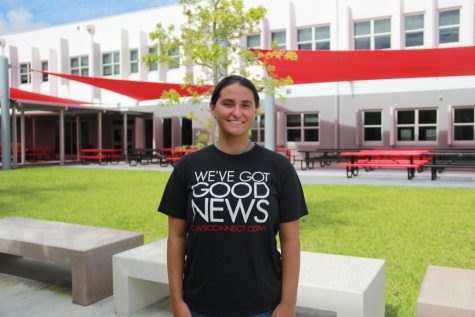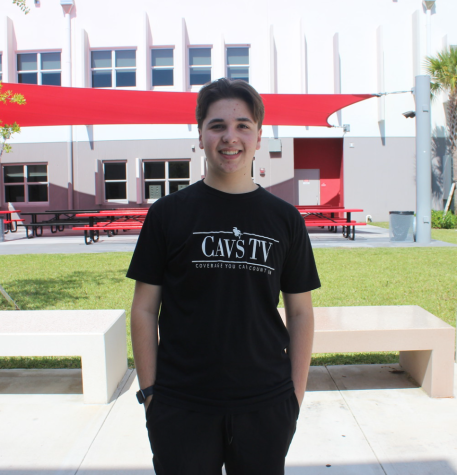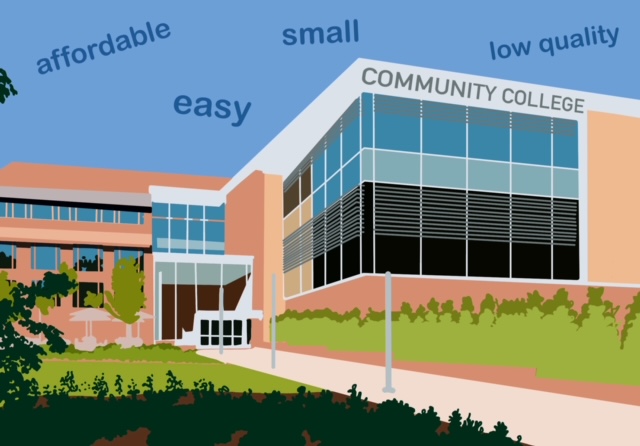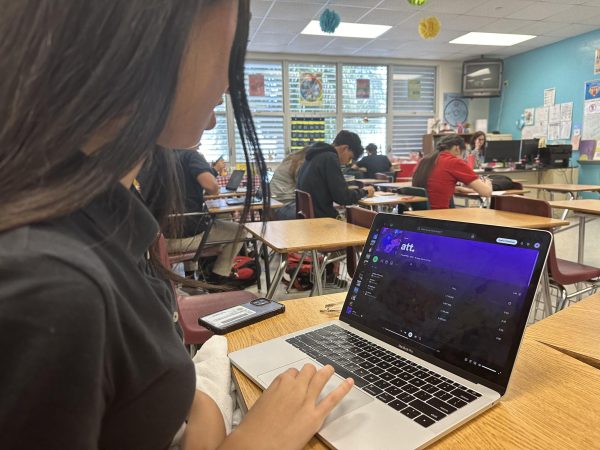Stigma Behind Community College
Many people inaccurately characterize community college as an easy and low-quality education.
It is common knowledge that the college you attend will have a significant impact on your job options throughout your life. In addition to being a life-altering choice, choosing a college may also be exceedingly difficult, due to the abundance of possibilities. Indeed, your options are practically endless; high school students often apply to a plethora of state institutions and private colleges, but community colleges are not even on the minds of many individuals.
Many people believe that students only attend community college because they were rejected by a traditional universities. This presumption is accompanied by the misconception that community colleges provide education of a lower caliber than traditional institutions, which is not always the case. Many professors who work for traditional universities have also worked at community colleges at some point. The main difference is that you might not receive the same level of individualized attention if you take a course from a particular professor at a regular institution as you might if you took the same course at a community college.
I think a lot of the stigma surrounding community colleges comes from the assumption that because they are affordable, the education will not be as good as that of a prestigious university. Community college is also often seen as a transitional period between high school and further education at other programs, which devalues the programs and experiences offered there,
— senior Cheryl Fiffe
7.7 million students, or well over 40% of undergraduates in the United States, attend community colleges. The millions of extra non-degree students who are enrolled in a few courses or working for a certificate are not included in those statistics. It is safe to say that in the world of higher education, this path is well-traveled.
The common perception that the degrees offered at community colleges will not take you as far as those from formal universities is another factor in why many people despise them. However, there is little difference between a degree obtained from a community college and one obtained from a state or private college. In actuality, a lot of prosperous people hold a degree from a community college. Oscar winner Tom Hanks, Arthur Goldberg, and H. Ross Perot are just a few graduates from community colleges who went on to do great things.
“People now think of colleges like we compare job salaries and admission rates. People compare colleges like our cars. Everyone first buys a used one because it’s cheap; this is completely normal, but going to a community college isn’t?,” senior Angel Li said.
Many people believe that community colleges only accept “non-traditional students”—another term for older students—and that they provide a worse quality of education than regular universities. Community colleges do give working individuals who want to get a degree more flexibility, but just as many young people enroll in them straight out of high school as there are older people who go back to school later in life. The average age of a community college student is 28, and just 16% of them are above 40, according to the American Association of Community Colleges. Even pupils in middle and high schools enroll in community college courses to round out their education.
The students themselves may have the largest impact on how the public views community colleges. While some community college students make the most of what their institutions have to offer, many other students fall short of getting the most out of their time there. Simply put, a lot of community college students are unaware of the support services and career preparation programs available at their institutions. Community college students might be able to influence the public’s perceptions if they were to take their opportunities seriously.
“Overall, I think we need to share the message that college is what you make of it and that everyone can be successful whether you are going to Princeton, a community college or foregoing college. If you think that you need to go to Harvard to be successful, then you don’t deserve to be there,” senior Faith Diaz said.
People are prone to being dubious of things they do not understand, which may be why community colleges are still widely frowned down upon. If you have not attended classes at a community college or do not know someone who has, you can unknowingly be spreading some of the myths mentioned above. Community colleges are actually just as solid of a choice for higher education as traditional state and private universities.
Your donation will support the student journalists of Coral Gables Senior High School. Your contribution will help us cover our annual website hosting costs.

Jacqueline Rodero is a senior in the International Baccalaureate program. This is her second year as a CavsConnect staff writer. As she closes her time...

Anthony Abrahantes is a senior in the International Baccalaureate program. Born in Miami, Anthony is the middle child in his family. This will be his third...















